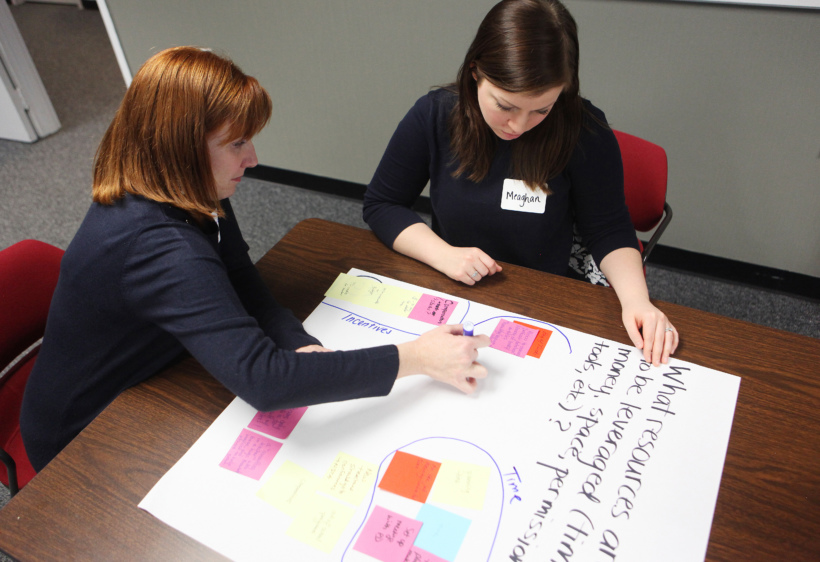News
WW Academy: Measuring Learning

Traditionally, at any level of education—even professional education—students prove they’ve learned the material by completing an assignment, writing a paper, or taking a test. But, when designing a teacher preparation program for today and tomorrow’s demands, are these traditional forms of assessment adequate?
“One of the special things about teaching is it’s not just discrete skills that determine what a teacher is,” says Jonathan Haber, Director of Learner Assessment for the Woodrow Wilson Academy of Teaching and Learning. “It’s the connection between those skills.”
The competency-based WW Academy model throws out seat time in a professional preparation program, replacing it with demonstrated mastery of the skills and knowledge needed to be a successful teacher.
For this model to function properly, it is vitally important to assess mastery properly. “Competency-based education can only work with a good assessment,” says Yoon Jeon Kim, a research scientist at the MIT Teaching Systems Lab. She joined the work of the WW Academy “to be part of innovation where we think about and be creative about what assessment can look like in a competency-based program.”
“So the interesting challenge here,” says Mr. Haber, “is that we both have to measure [learners’] competence in mastering these discrete skills and also have to see how those skills fit together—how can that be measured?”
As the WW Academy develops assessment methods and tools that blend seamlessly into the program, the team is “thinking about what the assessment machinery looks like,” says Dr. Kim. “How do you aggregate or accumulate all the different types of evidence generated by challenges and make sense out of it?”
By thinking critically about assessment and how it fits into the challenges and curriculum as a whole, the WW Academy hopes to create a space where prospective teachers can demonstrate what they already know and can do and move through the WW Academy program accordingly.
As prospective teachers move through the challenges, they are able to demonstrate a host of skills they need to know before entering the classroom.
“The competency-based piece is being delivered through integrated challenges that stem from real problems of practice, real scenarios that our graduates will face,” says Julianna Stockton, WW Academy Faculty Mentor in mathematics. “It is key that it’s through this challenge. You’re not checking off competencies down a checklist.”
Completing the program effectively, however, requires more than passing a leadership module and a classroom management module. Prospective teachers in the WW Academy must also be observed, coached, and assessed by mentors in the classrooms where they gain firsthand experience to complement their personalized lessons.
The WW Academy’s model ensures that the prospective teachers are able to draw from all the required disciplines, fields, and skills to become the most effective educators. “We are looking to measure what is probably one of the most complicated human activities,” says Haber, “and to build that into a program that is going to improve teacher experience, improve education, and improve my kids’ experience and my grandkids’ experience.”

